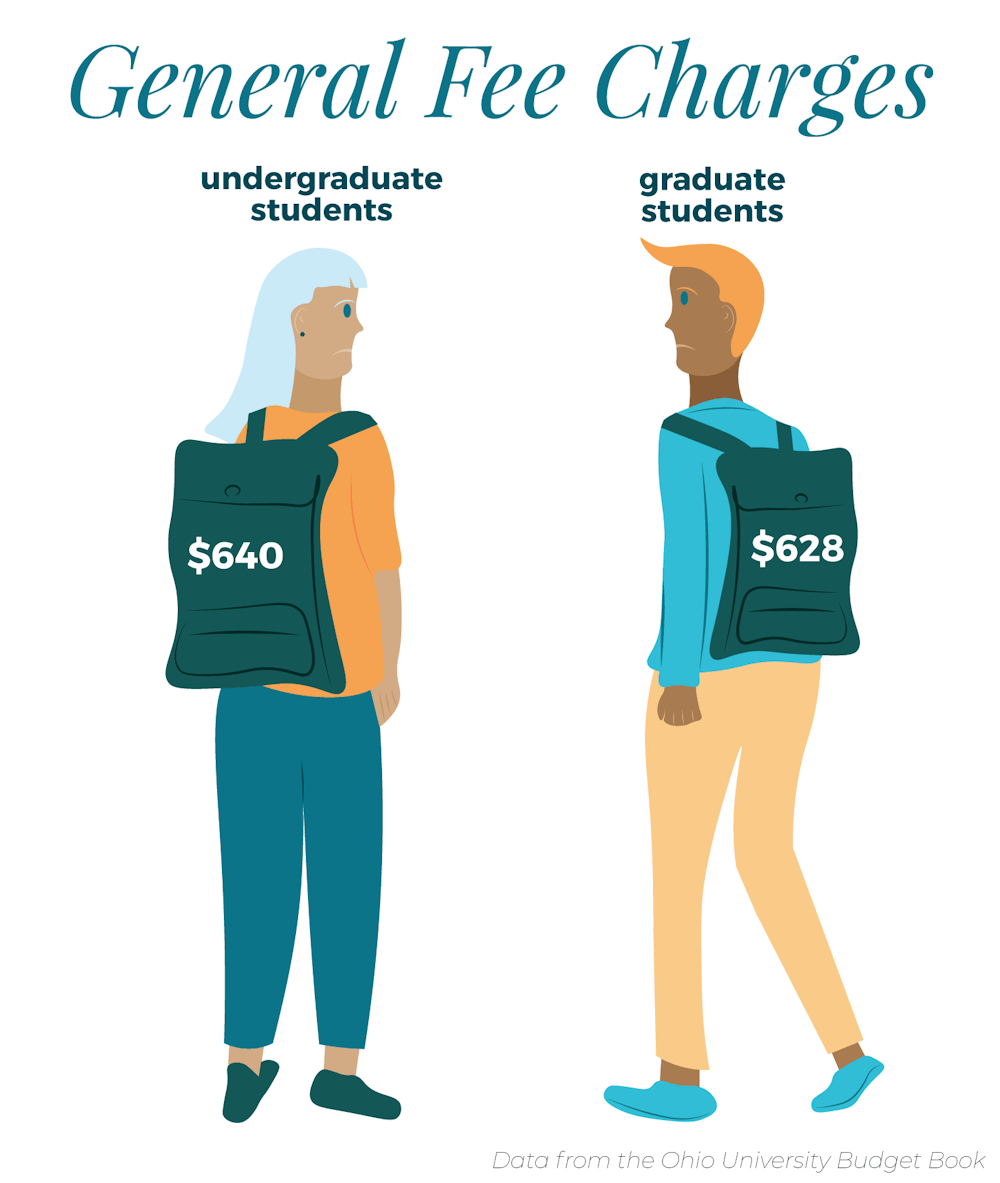Correction appended.
Undergraduate and graduate students at Ohio University pay over $600 in unrestricted fees as part of their tuition, but many students don’t know what the fee pays for.
The general fee charged to students is described by the Office of the Bursar as a fee used for a student’s well-being and development as well as cultural and social development outside of the classroom. Students enrolled in at least one class must pay the general fee. Undergraduate students taking over 12 credit hours must pay $640 as a general fee, while graduate students taking over nine credit hours are charged $628.
The fee goes to a university general fund that is used to pay for many different university needs, Chad Mitchell, chief of staff for the Division of Finance and Administration, said in an email.
Under the College Credit Plus legislation, IHEs are required to waive all payment of all fees related to participation in the program, so students are not charged, Robert Callahan, acting senior director of Recruitment and Partnerships, said in a email. Textbooks and tuition are paid for by the students school district out of the districts per-pupil distribution.
Mitchell said that student tuition, including the general fee along with a variety of other sources, goes into a university general fund that pays for many different institutional needs, including athletics.
Brett Fredericksen, a fourth-year graduate student senator for the plant biology department, said he has been in touch with Mitchell and other administrators about getting a breakdown of where the money from the general fee goes. Fredericksen has been curious, but like many other students, he is unsure.
“I can’t get an answer from the graduate side of it,” Fredericksen said. “Graduate Student Senate has been working to … increase the buydown of the general fee.”
Fredericksen has been unable to gather much information about the general fee during his time at OU. He helped Graduate Student Senate to create a five-year plan to reduce the cost for graduate students who work as graduate assistants and teaching assistants.
The five-year plan pushes to reduce the general fee costs for those students by $10 each year. Last year, GSS was able to decrease the cost of the general fee to $628 for those graduate students. However, the undergraduate fee remains at $640.
The cost of tuition rose by about 2% for students who enrolled in 2019, which also increased the cost of the general fee, according to the university’s budget.
Fredericksen would like to be able to see a breakdown of where the money goes.
He completed his undergraduate degree at the University of Minnesota, where students received a full tuition breakdown at the beginning of every year, he said.
“At my undergrad institute and other institutes … I would receive, at the start of every year, a full breakdown of where the money went,” he said. “My understanding of why we don’t do that here is that the university’s organizational structure is so decentralized. In this case, it would be physically difficult to follow all of those lines.”
Correction: A previous version of this report incorrectly stated Elizabeth Sayrs at the Board of Trustees meeting. The article has been updated to reflect the most accurate information.






